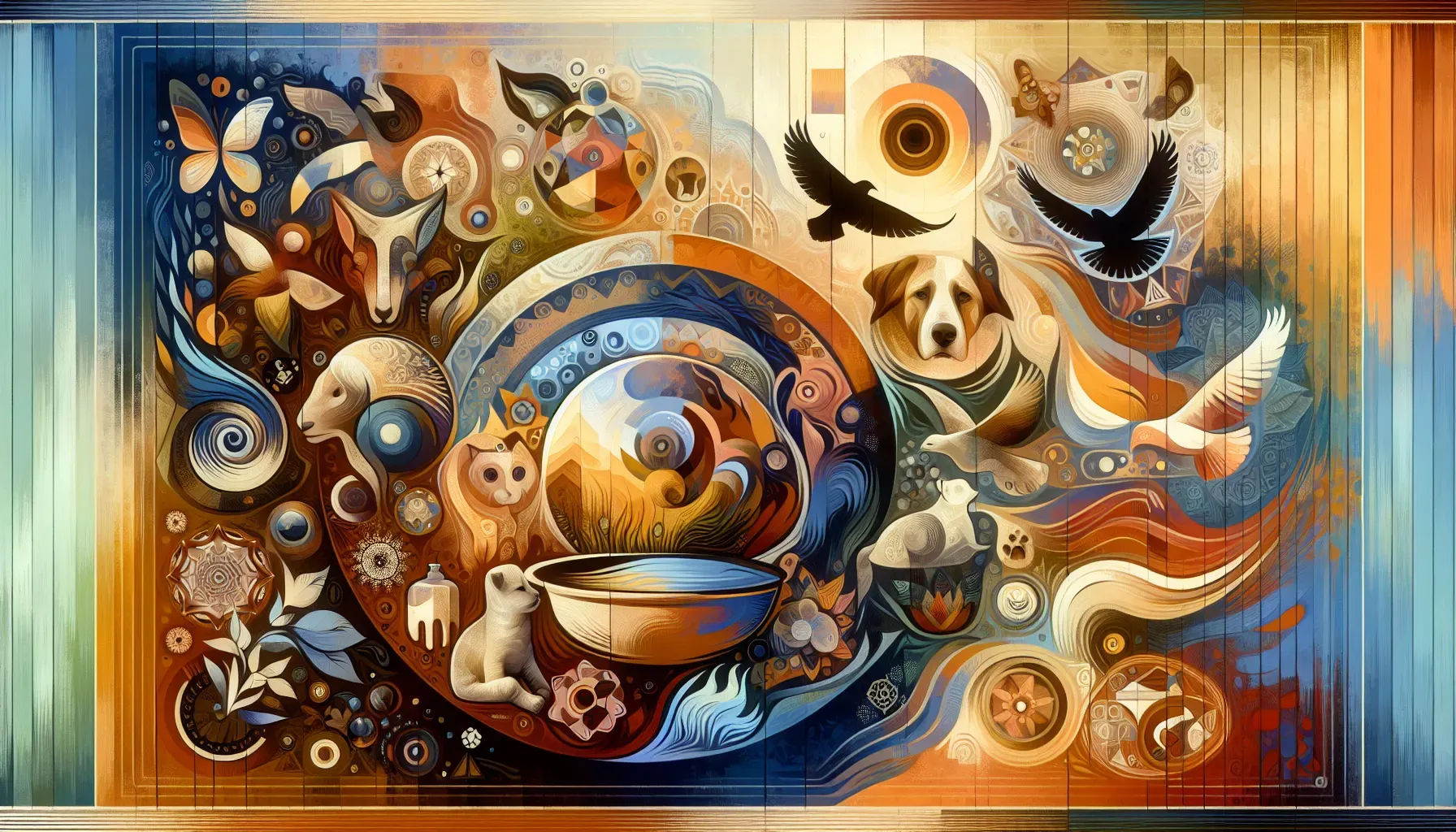
Pet care practices are deeply rooted in cultural beliefs, shaping the way pets are nurtured and cared for in various communities around the world. Understanding these traditional influences is crucial to providing holistic care for our beloved animal companions.
Cultural Influences on Pet Care Practices
In many cultures, pets are regarded not just as animals but as integral members of the family. This perspective significantly impacts the approach to pet care, encompassing dietary choices, grooming rituals, and even the use of traditional remedies for common ailments. In some traditional societies, specific breeds or species of animals hold symbolic meanings and are revered for their perceived spiritual significance.
To ensure the well-being of pets in diverse cultural settings, it's essential to recognize and respect these traditional beliefs while also promoting modern veterinary practices and ethical standards of care.
Customs and rituals associated with pet care often reflect deep-seated cultural values and norms. From ceremonial blessings to annual pet festivals, these traditions play a crucial role in maintaining the physical and emotional health of pets within their respective cultural contexts.
Customs and Rituals in Pet Care
For example, in certain cultures, there are customary rituals for welcoming a new pet into the home, involving prayers for prosperity and longevity. Similarly, grooming ceremonies may hold symbolic significance beyond aesthetic purposes, signifying the animal's purity and well-being within the family unit.
Understanding these customs not only enriches our appreciation of diverse cultures but also enables us to tailor pet care strategies that honor these traditions while promoting modern standards of health and hygiene.
The rich tapestry of global pet care practices reflects an intersection of heritage and compassionate care. For centuries, different communities have developed unique approaches to raising and nurturing their animal companions, drawing on ancient wisdom passed down through generations.
Related Article: Unleashing Empathy: Personal Journey Narratives in Pet Care
Heritage and Modern Pet Care Practices
Whether it's the art of traditional healing methods or age-old techniques for behavioral training, these practices exemplify the deep bond between humans and animals across diverse cultural landscapes. Embracing global pet care practices rooted in tradition allows us to appreciate the shared dedication to animal welfare while embracing the diversity of approaches that enrich the global tapestry of pet care.
Pet care transcends geographical boundaries, encompassing a tapestry of beliefs and practices that celebrate diversity. From indigenous remedies used by communities in remote regions to urban pet care customs shaped by contemporary lifestyles, every approach embodies a unique expression of compassion for animals.
Exploring multifaceted approaches to pet care from around the world not only broadens our understanding but also inspires collaborative learning. By recognizing the value of diverse perspectives, we cultivate a global culture of respect and empathy towards pets while fostering an inclusive environment for sharing knowledge and experiences.
Diverse Approaches to Global Pet Care
The transmission of cultural wisdom through generations has endowed us with a treasure trove of unique techniques for pet care. From herbal remedies rooted in ancient healing traditions to specialized grooming methods that reflect cultural aesthetics, these time-honored practices embody a wealth of wisdom that continues to shape contemporary pet care approaches.
By showcasing these unique techniques passed down through generations, we not only celebrate cultural heritage but also elevate our awareness of alternative solutions that enrich the spectrum of modern pet care practices. Integrating elements of traditional wisdom into mainstream pet care fosters a more comprehensive and inclusive approach that benefits both pets and their human companions.
Frequently Asked Questions
Cultural influences significantly shape pet care practices by embedding traditional beliefs into how pets are nurtured. These practices can include dietary choices, grooming rituals, and the use of traditional remedies, reflecting the integral role pets play within families across various cultures.
Customs and rituals related to pet care often reflect cultural values that enhance the physical and emotional health of pets. For instance, welcoming ceremonies or grooming rituals may symbolize purity and well-being, reinforcing the bond between pets and their families.
Recognizing traditional beliefs in pet care is essential for providing holistic care. It allows caregivers to respect cultural practices while integrating modern veterinary standards, ensuring that pets receive comprehensive care that honors their cultural significance.
Global pet care practices rooted in tradition include various healing methods and behavioral training techniques passed down through generations. These practices highlight the deep bond between humans and animals, showcasing diverse approaches to nurturing pets across cultures.
Diverse approaches to pet care benefit animals by promoting a culture of empathy and respect. By exploring various customs and remedies from around the world, caregivers can adopt innovative strategies that enhance the overall well-being of pets in different environments.
Cultural wisdom plays a vital role in modern pet care by introducing unique techniques such as herbal remedies and specialized grooming methods. Integrating these time-honored practices enriches contemporary approaches, fostering a more inclusive understanding of animal welfare.
Traditional remedies can be effective for pet health when used appropriately. Many cultures have developed herbal treatments that address common ailments, showcasing the importance of blending these time-tested solutions with modern veterinary practices for optimal pet care.
Understanding diverse pet care traditions benefits both pets and their owners. It fosters a deeper appreciation for cultural diversity while encouraging collaborative learning among caregivers, ultimately leading to improved animal welfare and more effective care strategies.
Check Out These Related Articles

Chronicles of Cultural Diversity in Pet Care Practices Worldwide: Tracing Ancestral Roots and Modern Innovations Across Cultures

Global Perspectives on Pet Companionship and Culture




